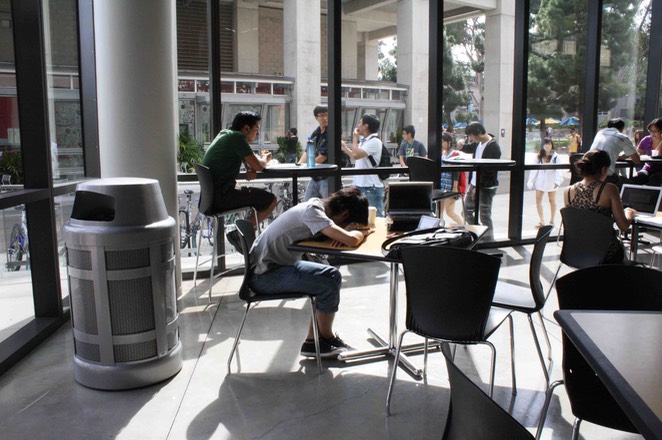Each year news media and social networking cover stories on overindulgence. Here are my top five stories in this year’s news as proof that we do live in an ever-growing age of overindulgence.
1. The “Affluenza Teen" Violates Probation and Flees to Mexico
Ethan Couch dubbed at the “affluenza teen” was back in the news for violating probation. In 2013 he stole his father’s truck and drove drunk into a SUV on the side of the road killing four and injured two others. He had a blood alcohol level three times the legal limit. A psychologist testified that Couch suffered from affluenza and he was not responsible because he grew up in a wealthy home. His parents never disciplined him for doing wrong. They gave him so much freedom he did not understand how to be responsible for his actions. The judge sentenced him to 10 years probation. Under the conditions of his probation he could not drive, drink alcohol or use drugs.
Earlier this year a six-second video was uploaded to twitter showing him playing beer pong with friends - a violation of the terms of his probation. Following this he fled to Mexico with his mother. The two were discovered and arrested by Mexican authorities and are awaiting extradition back to the U.S.
It is clear to me that Ethan Couch is this year’s “Overindulgence Poster Boy!” He is an example of extreme childhood overindulgence (Too Much, Overnurture, Soft Structure). His parents gave him way too much - everything he wanted. By their own admission they had no rules for him, no consequences, no discipline. Parents take note of what can happen as a result.
2. College Student Blames Parents After Blowing $90,000 College Fund
A 22-year-old college junior named Kim spent all of the $90,000 college tuition fund given to her by her grandparents. It was spent on trips to Europe, back-to-school clothes as well as on tuition and after three years it is all gone. She was a caller to the Atlanta radio talk show called The Bert Show. During her call she complained that her parents would not pay for her senior year’s tuition costing $20,000 ($10,000 per semester). In a follow-up show Kim blamed her parents for her financial predicament. They would have taken responsibility for her and taught her how to budget.
3. Mother Posts Picture of Christmas Tree Covered in Presents

Emma Tapping, a mother of three children in the United Kingdom posted this picture on Instagram and it went viral. Some of the people seeing the picture called her a “materialistic parent” and her children “spoiled brats.” She spent around £1,500 ($2,270) on 300 presents for her children. She defended herself by saying that she loves Christmas and that she is a thrifty shopper.
“I LOVE Christmas. I LOVE spoiling my kids in the festive season and I work damn hard to make sure it is every bit as amazing as it can be."
Is she overindulging her children? To decide, apply the test of 4 by answering these four questions. Remember, a “Yes” answer to one or more suggests there is overindulgence.
1. Will doing or giving this interfere with or slow down my children’s learning what they need to learn at this age?
2. Will giving this thing or activity or experience use a disproportionate amount of family resources on one or more of the children?
3. Is this activity done more to please the parents than for the benefit of the children?
4. Does this situation potentially harm others, society, or the planet in some way?
Did you find at least one “Yes” answer to the above questions? I did.
4. Parenting/Today Moms Survey: “Are Your Children Spoiled?”
A survey of 6,000 parents found that almost 59 percent believe children are more spoiled then we were at as kids. Three quarters of parents say that their children are less than grateful. Other findings from the survey:

Do you think your kids are spoiled during the holidays?
Yes. Our gift-giving has gotten out of control. 19.9%
A little. We could definitely cut back. 56.2%
No. We set limits and stick to them. 23.9%
Do you ever feel guilty for saying no to something on your child’s wish list?
Never. We’re the parents spending the money, and they need to accept that. 24.1%
A little, but we openly discuss why some gifts aren’t possible. 57.7%
Yes. As parents we want to be able to give them everything. 18.2%
What do you do to teach kids the importance of giving back during the holiday season?
Volunteer as a family 16.3%
Donate gifts and/or money to those less fortunate 70.2%
Other 16.5%
Not much 21.2%
Do you require your kids to send thank-you notes?
Always 30.7%
Sometimes 41.7%
Never 27.6%
Your child pitches a fit when Grandma gives him an unwanted gift. How do you handle this situation?
Immediately apologize on your child’s behalf 3.5%
Make your child apologize for his behavior 67.8%
Reprimand/discipline the child 19.2%
Nothing in the moment, but we’ll sure be talking about it later 7.6%
Laugh it off…kids will be kids 1.8%
5. Kids of Helicopter Parents Having Psychological Problems in College
I don’t ever remember receiving a call from an irate parent pressuring me to change a grade 40 years ago when I began teaching as a college professor, but it was an all too often occurrence when I retired three years ago. I don’t remember parents attending college orientation days demanding to pick all of their child’s fall classes either. Now my university plans a separate schedule for parents so academic advisors can work with students without parental overreach. And parents NEVER demanded to sit in on spring job interviews when recruiters came to campus, but now it is a common occurrence.
My coauthors Jean Illsley Clarke, Connie Dawson, and I call this phenomena “Overnurture”. Doing something for children that they should be doing themselves. The question I want you to ponder is “What happens to a child who was overnurtured by helicopter parents and then grows up and goes to college?”
Some of the answers are in a 2013 American College Health Association survey of 100,000 college students from 153 different campuses:

- 84.3 percent felt overwhelmed by all they had to do
- 60.5 percent felt very sad
- 57.0 percent felt very lonely
- 51.3 percent felt overwhelming anxiety
- 8.0 percent seriously considered suicide
A 2013 study of helicopter parenting in the Journal of Child and Family Studies found that college students who had over-controlling helicopter parents reported significantly higher levels of depression and less satisfaction with life.
A 2014 Colorado University study found that children whose parents put their children in “more structured activities” like piano lessons or football/soccer practice had what they termed as poorer “self-directed executive function” a measure of a child’s ability to set and reach goals independently.
These three studies corroborate our overindulgence research findings. We found that childhood overindulgence is significantly related to a number of negative characteristics in college age students: lower self-efficacy, an inflated sense of self-righteousness, and an increase in dysfunctional attitudes. High levels of dysfunctional attitudes lead to increased rates of depression.
“What happens to a child who was over nurtured by helicopter parents and then grows up and goes to college?” Let me tell you, it is not good!
There is more help about avoiding overindulgence in How Much is Too Much? Raising Likable, Responsible, Respectful Children – From Toddlers To Teens – In An Age of Overindulgence (2014, DaCapo Press Lifelong Books).
Photo from Emma Tapping Instagram, MorgueFile Free Photos, Video from YouTube.com


